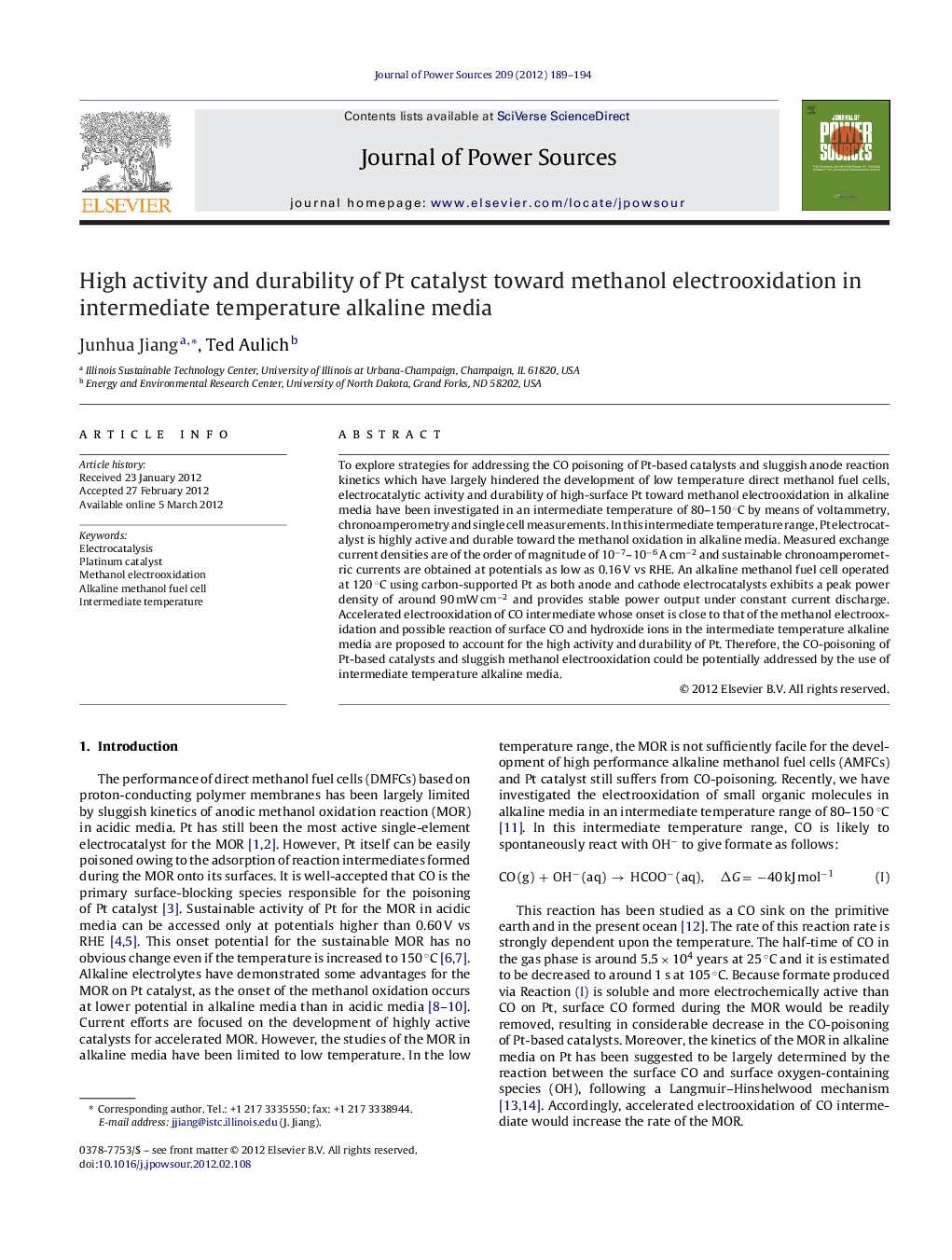| Article ID | Journal | Published Year | Pages | File Type |
|---|---|---|---|---|
| 1284542 | Journal of Power Sources | 2012 | 6 Pages |
To explore strategies for addressing the CO poisoning of Pt-based catalysts and sluggish anode reaction kinetics which have largely hindered the development of low temperature direct methanol fuel cells, electrocatalytic activity and durability of high-surface Pt toward methanol electrooxidation in alkaline media have been investigated in an intermediate temperature of 80–150 °C by means of voltammetry, chronoamperometry and single cell measurements. In this intermediate temperature range, Pt electrocatalyst is highly active and durable toward the methanol oxidation in alkaline media. Measured exchange current densities are of the order of magnitude of 10−7–10−6 A cm−2 and sustainable chronoamperometric currents are obtained at potentials as low as 0.16 V vs RHE. An alkaline methanol fuel cell operated at 120 °C using carbon-supported Pt as both anode and cathode electrocatalysts exhibits a peak power density of around 90 mW cm−2 and provides stable power output under constant current discharge. Accelerated electrooxidation of CO intermediate whose onset is close to that of the methanol electrooxidation and possible reaction of surface CO and hydroxide ions in the intermediate temperature alkaline media are proposed to account for the high activity and durability of Pt. Therefore, the CO-poisoning of Pt-based catalysts and sluggish methanol electrooxidation could be potentially addressed by the use of intermediate temperature alkaline media.
► Pt is highly active and durable toward methanol electrooxidation in hot alkaline. ► CO-poisoning of Pt catalyst could be potentially addressed in hot alkaline. ► Methanol electrooxidation can be substantially accelerated in hot alkaline media. ► Performance of intermediate temperature alkaline methanol fuel cell is high.
